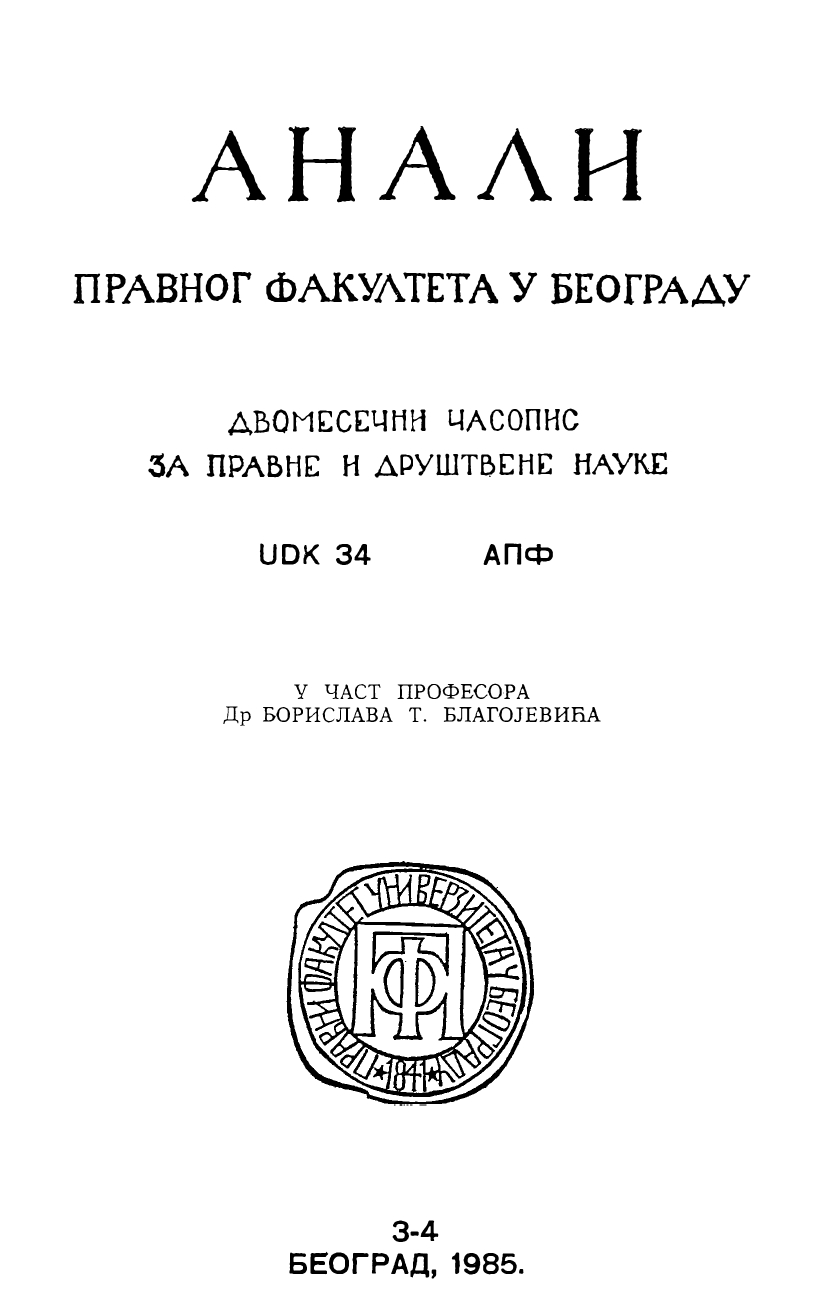НЕШТО О ПРИВРЕДНОМ ПРАВУ ИЗ ИСТОРИЈСКОГ УГЛА
SOME HISTORICAL ASPECTS OF THE ECONOMIC LAW
Author(s): Vrleta KruljSubject(s): Law, Constitution, Jurisprudence
Published by: Правни факултет Универзитета у Београду
Summary/Abstract: The article deals with the basis of forming of the economic law in capitalism and in socialism. In the period of capitalism, at the beginning of the twentieth century and after that even more, the state had intervened in the economic activities and in the life of society. Earlier such intervention was reduced to ensuring self-regulatory mechanisms of the market; now, on the other hand, in the period of monopoly capitalism, such intervention is expressed in direct economic functions of the state. According to the author dealing with this topic, the economic law is but a law of intervention of the state into the economic activities. In socialism, as a new and qualitatively different social formation, the issue had to arise as to what has to be done with the classical private law. P. Stučka — an outstanding Soviet legal scholar after the Revolution, created a theory of the double-seotor law. According to him, there exists at one side the civil law, which regulates the relations between individuals and the socialist organisations, and at the other side — an administrative-economic law which regulates relations withih the frameworks of the socialist sector, provided the relations between them are antagonistic, so that they are in constant conflict and struggle. Stručka’s theory on the double-sector law has been rejected and the conception of so-called economic law was adapted, according to which there exists unity in socialism of the property law relations and consequently the uniform economic law whose institutes should be applied to all subjects of society, meaning socialist organisations and individuals. The »conception of the economic law« has been rejected too. In all socialist countries the existence of civil law is recognized which regulates relations between the individuals and the ones between the individuals and the socialist organisations. This law has been cleared from the class-bourgeois institutes. Also recognized is the existence of the economic law (although the term may vary) which regulates the relations within the socialist sector.
Journal: Анали Правног факултета у Београду
- Issue Year: 33/1985
- Issue No: 3-4
- Page Range: 403-408
- Page Count: 6
- Language: Serbian

